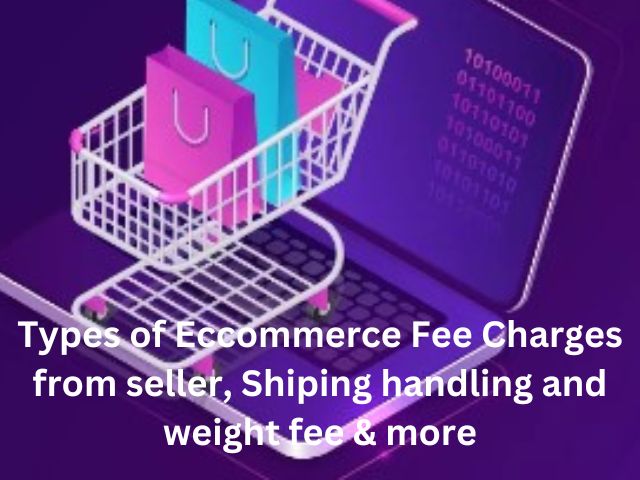
These are the 9 common fee from seller by eccommerce company, which is known but it is real.
- Referal fee
- Closing fee
- Weight handling fee
- Technology fee
- Pick & pack fee
- Shipping chage
- Return fee
- FBA stores free
- Easy fee
E-commerce platforms typically charge various fees to sellers for using their services, and these charges can vary depending on the platform and the services provided. Here are the common types of fees that e-commerce platforms might charge sellers:
Listing Fees: A fee charged for listing a product on the platform, regardless of whether it sells or not. Often seen on platforms like eBay, though many e-commerce platforms have moved away from this in favor of other fees.
Subscription Fees: A fixed monthly or yearly fee that sellers pay to access the platform’s selling features and tools. Amazon has different subscription plans like the Individual plan (no monthly fee but per-item fees) and the Professional plan (monthly fee with lower per-item charges), Amazon, Shopify, and other platforms that offer tiers of selling plans.
Transaction Fees: A fee charged for each successful transaction or sale made through the platform. It is usually a percentage of the total sale price, including shipping. Example: Etsy charges a 6.5% transaction fee on the total order amount. Etsy, eBay, and others often charge a transaction fee.
Referral Fees (Commission) : A fee deducted from each sale based on a percentage of the product’s selling price. It is similar to transaction fees but can vary depending on the product category. Example: Amazon charges referral fees that vary by category, ranging from 6% to 45%. Common on Amazon and other large marketplaces
Payment Processing Fees; A fee charged for processing payments made through the platform, often a percentage of the transaction and a fixed amount. PayPal or Stripe charges, which may be around 2.9% + $0.30 per transaction. Shopify, Etsy, and others might charge this if they provide their payment gateway or integrate with third-party payment processors.
Fulfillment Fees: Charges for storage, packing, and shipping if the platform offers fulfillment services (like warehousing). Amazon’s Fulfilled by Amazon (FBA) program charges fees for storing items in their warehouses and fulfilling orders. Amazon, Walmart Marketplace, and other platforms that offer similar fulfillment services.
Advertising and Marketing Fees: Fees for promoting or advertising products on the platform to increase visibility. Amazon’s Sponsored Products ads or Etsy’s offsite ads, where sellers pay a fee for each click or sale generated through ads. Amazon, Etsy, eBay, and other platforms with built-in advertising options.
Shipping fee: Some platforms charge sellers for using their shipping services or labels. Platforms like eBay or Etsy may offer discounted shipping rates, but sellers still need to cover the shipping costs. eBay, Etsy, and other platforms where sellers manage their shipping but can use the platform’s rates.
Return and Refund Fees: Some platforms may charge a fee when processing refunds or returns. Amazon sometimes retains a portion of the referral fee if a return is processed. This can vary and is usually more common in platforms with strict return policies.
Storage Fees: If a platform provides warehousing services, they may charge sellers for storing their inventory, particularly if items are stored for extended periods. Amazon FBA charges long-term storage fees for items stored in their warehouses for over 365 days. Amazon, Walmart Marketplace, and others offering fulfillment services
These fees can vary widely between platforms and depend on the seller’s product category, sales volume, and whether they use optional services like fulfillment or advertising.




![Moon Jellyfish has [ Hidden Secrets ] You don't know moon jellyfish](https://spaceupper.com/wp-content/uploads/2022/11/1-1.jpg)

